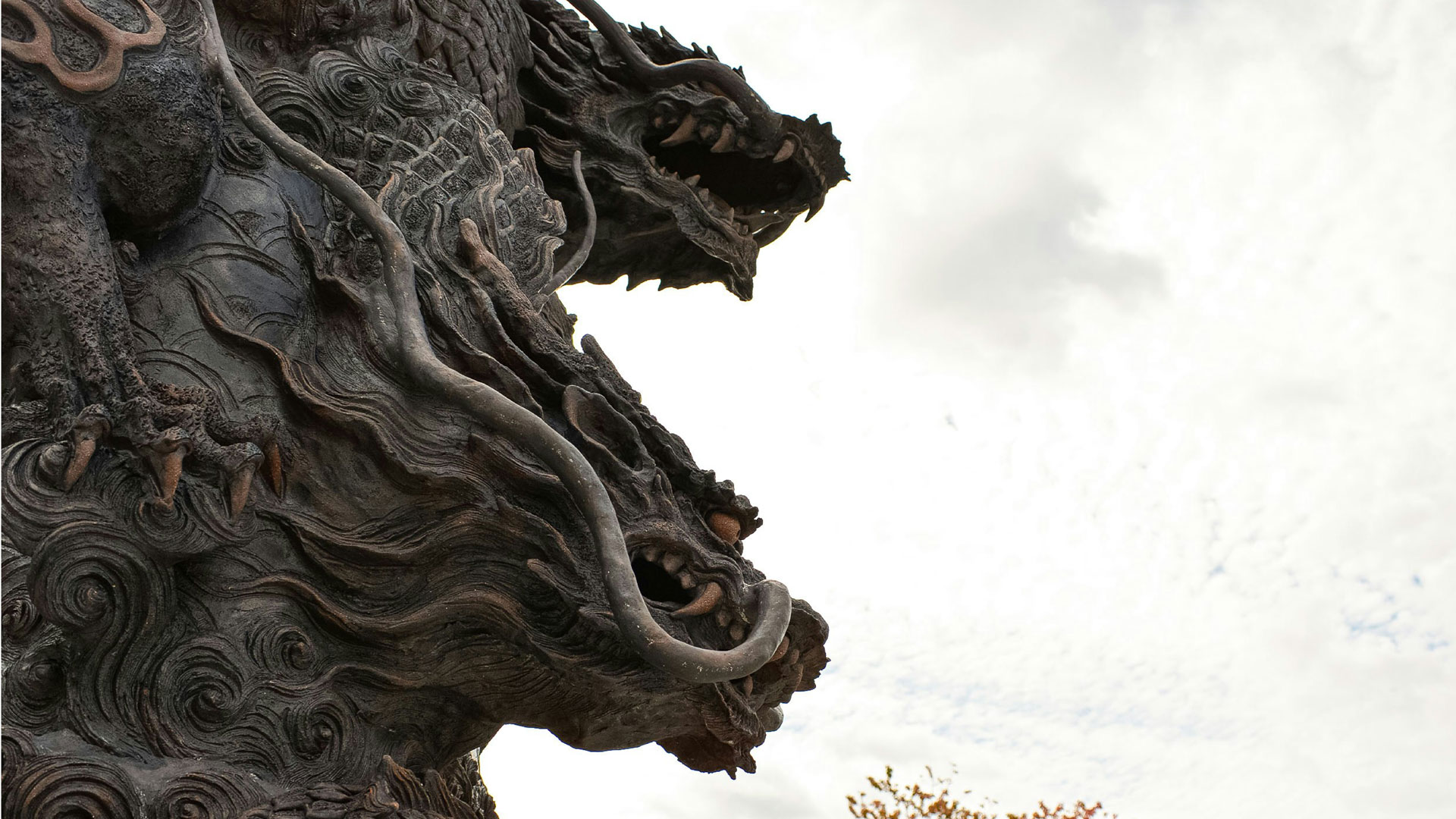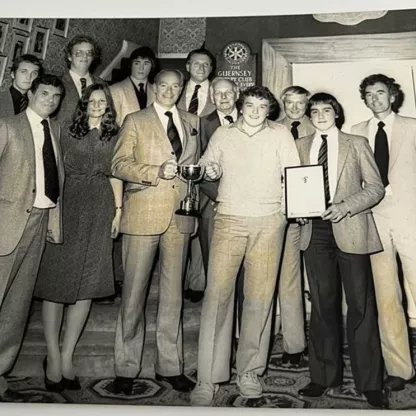Fantastical blockbusters like House of the Dragon aren’t for our head of multi-asset investments David Coombs. For him, nothing beats a gritty realistic drama. Besides, you can’t dream up anything crazier than real life in the year 2025.

Clowns and dragons
There are times when I feel quite alone.
Don’t panic this isn’t a cry for help! I just don’t get Game of Thrones, Lord of the Rings or House of the Dragon. Dragons and hobbits, what’s that all about? To me they are children’s stories, although I appreciate the content is a bit more than Enid Blyton might have included in the Famous Five – and to think she now comes with trigger warnings.
The whole fantasy genre leaves me stone cold. I prefer realistic, depressing drama to give me a contrast to the fantasy and hype often experienced in my day job. When I tell people I think Game of Thrones is dull they look at me with a mixture of incredulity and pity. As a fund manager, however, you get more used to that the longer you do this job.
Last year I watched the valuations of the Magnificent Seven and others in the AI basket of investments move ever higher, driven by expectations of a new paradigm powered by advances in coding. Yes, demand for the most sophisticated chips was high due to the ‘gold rush’. Companies were slow to adopt the cloud, they weren’t going to make the same mistake twice.
The only problem: no one quite knows how the new technology is going to drive an increase in earnings for the people buying all these chips. The markets moved higher regardless as flows into passive vehicles increased, creating a virtuous circle for the winners of this theme.
Just an uncool kid, at home, watching re-runs
To me, last year’s AI hype started to feel a bit like a re-run of the internet hype of the late nineties. I could see the long-term benefits of AI, indeed likely causing a huge increase in productivity and big social impacts. However, my (and my team’s) scepticism around the forecast profits being discounted way into the future, wasn’t a popular view.
As a result, we continued to trim our exposure to AI holdings throughout 2024 and found ourselves lagging peers, including both other active – but especially passive – funds. To us, the risks seemed to be just rising exponentially, yet no one wants to hear this at a party.
The questions started to come in. What are you going to do about performance? Phrased in many different ways, some uncomplimentary! The answer was nothing and that’s not a popular response. FOMO was in the ascendancy. If you think about it, the question really is: when are you going to admit you’re wrong, capitulate and follow the crowd?
I can tell you the pressure to concede was incredibly high – still is, to a degree. It was the same in 1999. However, back then my team did not, and I think 2025 looks set for a return to company fundamentals, for the gritty realism of the everyday and not for the fantasy of big future dreams. If so, the workaday details of individual business’s strengths, weaknesses, opportunities and risks will dictate share prices once again. That could reduce the importance of swings in ‘market leadership’ on returns and erode the concentration of returns among a handful of companies. This is the time for active managers to fight back.
New season, different protagonists, same stories
This year, of course, the narrative has moved from AI as the disrupter-in-chief to MAGA and, more specifically, tariffs.
The year of the dragon was, literally, last year. Clowns are definitely at the forefront right now. The current US administration makes the Johnson and Truss equivalents appear units of calm and professionalism. That’s not to say we don’t see some merit in some of Trump’s arguments. I know that is also a lonely position!
The fact many of the US’s trading partners have been adopting protectionist policies for decades cannot be in doubt. Government subsidies, prohibitive regulations, complex border bureaucracy, tax competition and currency manipulation are widespread tools used by governments from Beijing to Paris. Ask New Zealand farmers if they think the EU is a virtue of free trading. Despite two free trade agreements signed since 2022, access for beef, butter and cheese (big French sensitivities) remains heavily constrained.
Our problem with Trump is in the execution. The, let’s put it kindly, bull in a china shop approach of ‘Liberation Day’ created chaos among friends and so-called foes alike. Uncertainty reigns, so planning is in disarray and confidence spiralling. Expectations for a global recession were near zero at the start of the year, now the average economist gives it an almost 50/50 chance.
I don’t have enough space here to talk about all the missteps over the past few months, but the latest personal attacks on Federal Reserve Chair Jay Powell are particularly crass and dangerous, whether you rate Powell or not.
The flow of money away from US bonds and equities has been quick and powerful and I believe it’s having an impact. So too are leading American CEOs’ visits to the West Wing, attempting to bring some sanity to proceedings.
Trump’s credibility has taken a knock – and that’s a good thing
I’m going to make a big call here. I think come late summer we will be through the tariff shock and fears of US recession and inflation will be diminishing. Company managers will be able to guide with more confidence and some normality will be restored to bond markets. That doesn’t mean the Trump circus packs up and is put in storage. The endless social media messages and commentary will continue, but they will pack less weight. He now has a big credibility gap.
We cannot predict how markets will move in the meantime, so we’re focused on positioning for the relief rally that we believe is coming. We think this will be led by government bond yields falling back, which will help interest-rate-sensitive equities. However, ‘defensive’ businesses, such as higher-yielding stocks, have held up pretty well during the recent volatility, so we think cyclical businesses, like banks, industrials, construction and automation and logistics machinery suppliers, are possibly the sectors that will lead the market in the second half of the year.
Our multi-asset portfolios already have significant holdings of companies such as US lenders Morgan Stanley and US Bancorp, UK construction wholesaler CRH, US building equipment hire business Ashtead, German warehouse kit maker Kion and industrial gas supplier Linde. Yet we may well add to these in the coming months.
In summary, we believe the view gaining traction that this is end of the US as the dominant global economic power is premature and we won’t be following the ‘hot’ investment flows into Europe. The regulatory environment hasn’t changed in the last six months, nor the lack of innovation nor poor productivity levels. Yes, valuations might be lower in Europe, but they should be. We buy European companies that are global leaders, but we shouldn’t just buy companies based on where they are listed.
The momentum swings over the past 18 months have been dramatic. When they are at odds with your view, it can bring short-term pain. But if one thing a long career in this game tells you, ultimately it always comes back to fundamentals. You need patience and a belief that, over the long term, making qualitative judgements on capital allocation will be rewarded over indiscriminate ones, i.e active decision-making over going with the flow.
When it comes to realism and fantasy, I will take your Game of Thrones (HBO) and trump you with the realism of Industry (BBC) every time. Oh, hang on though…
Tune in to The Sharpe End - a multi-asset investing podcast from Rathbones. You can listen here or whenever you get your podcasts. New episodes monthly.









